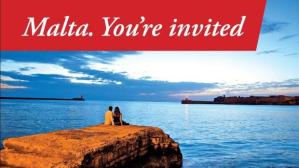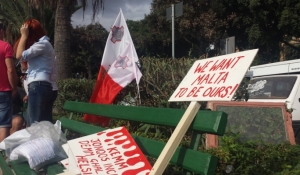There are now young voters who were born and brought up in an officially European Malta. They are the first ‘European’ generation who have no real experience of Malta as a British colony (like my parents’ generation) or as a newly Independent and neutral state (such as my generation). To them, Malta is a ‘European’ state embracing European values. Of course, that is not to say that Malta’s European identity started in 2004 when we joined the EU, but rather that that identity moved from being a purely cultural construct to a political reality.
Malta’s European identity is hardly a straightforward matter, because the term ‘European’ encompasses a vast range of cultural backgrounds that are often contradictory. Indeed, we need only look at Great Britain, the last of our many ‘European’ rulers, to realise just how complicated it can be. Britain’s relationship with Europe as a political entity has always been fraught, and it culminated in the great mess that is Brexit. It is a mess because it laid bare the cultural division within the Union itself. The Brexiteers hoped that by cutting their political ties with the continent they would bring back their nostalgic (and one might add, fictitious) United Kingdom. Well, the Irish, Welsh, and Scots have very different ideas. They’ve always had.
That Brittanic complication has permeated our sense of identity as well. The irony of writing about Maltese identity in English does not escape me…but we’ll come back to that later. There is much more besides language that we have inherited from the British – we drive on the left, we use three-pin plugs, and our parliament and electoral system are based on British models. To us, these are all part of our ‘European’ identity, in that they are ‘not Arab’ or ‘not African’, but all of this is as un-European as it could get. Mainland European tourists are still baffled by our driving (well, there are other reasons too), and our electrical fittings. What to us is ‘European’ is actually rather exotic to the mainland.
We also assume that English is somehow a mainstream European language and that ‘English’ culture is the predominant global culture, but the truth is that for most European countries, the English language is merely a tool to facilitate transactions. If there’s one thing that we have seen over the past twenty years is the gradual erosion of the concept of globalisation and a re-assertion of national identities, often accompanied by extreme racial ideologies. Even Malta has not been spared, as the many far-right pseudo-parties and pseudo-intellectuals that have emerged show. And yet, they all invariably get stuck on what constitutes ‘European’ values.
Extremist national ideologies all carry one common inherent contradiction: in an attempt to forge a ‘pure’ national identity, they destroy the very fabric of that national identity they are trying to ‘preserve’. Mussolini’s great Italian project had nothing to do with Italian identity, but rather with a misrepresented and imagined Roman Imperial past. It was not a cultural celebration of Italy but rather a political project aimed at justifying a political ideology, an ideology which required uniformity. If there is one thing that Italy isn’t, it’s uniform.
I use Italy as an example because as Maltese we often conveniently forget that up until the Second World War, we were culturally closer to Italy than to Britain. Most artists and professionals sought further training in Italy, and if not Italy the next port of call was France. (Fun factoid: Some great 19th century Maltese intellectuals such as composer Paolino Vassallo and polymath Napoleone Tagliagerro studied in Paris). It was only when Mussolini started bombing us that our relationship with the continent turned sour, thanks no small part to British propaganda. Sure Fascism was the enemy, but that does not make British Imperialism particularly beneficial either.
Prior to the Second World War Malta was already struggling to define its identity. New discoveries in history, archaeology, linguistics, and other areas were putting into question centuries old cultural narratives. New historical and cultural links with the Levant (in particular the ancient Phoenicians) were already creating a national identity crisis. The Second World War simply precipitated that crisis. Such was the hysteria around the subject that Mro Paul Nani was attacked in the press for conducting a performance of Bizet’s Carmen during the war, since performing Italian opera was considered hugely unpatriotic. Carmen is a French opera, but…details.
One must not dismiss such hysteria so easily, even if they present abhorrent or even ridiculous ideologies. One must not also assume that such ideologies are limited to the self-confessed far-right. Many self-professed ‘moderate’ or even ‘liberal’ intellectuals fall into such traps. Indeed, the infamous article on genetics and Maltese identity penned by none other than Kristina Chectuti that was recently published in The Sunday Times of Malta, is yet another example of how facts are twisted or ignored altogether in an effort to carve an idealised national identity.
Yet even after over 50 years of Independence, we are still struggling as a nation to define our identity. Up until 2004 our thinking was still dominated by Italy vs England. Most adults up until then had been brought up on a diet of Italian and Anglo-American culture. We still watched Italian television and listened to Italian songs, as well as American / British programmes via new technologies (cable & digital TV, and the internet). Our football culture was also very much still dominated by the Italy vs England discourse, as was our holiday making.
Of course there were areas where England had the upper-hand. Our business models and our higher education (especially when it came to studying abroad) was very much dominated by English models. The United Kingdom in the nineties / early 2000s was a rejuvenated political force under Tony Blair’s New Labour movement. Joseph Muscat would successfully emulate this new pseudo-socialism a few years later. Even now our national mint is still minting commemorative coins in honour of Queen Elizabeth II. She has not been head of state in Malta since 1974. That’s how reluctant we are to let go of our ‘British’ past.
But in 2004 a wedge was firmly hammered into that identity. By joining the EU we were faced with a terrifying existential question: Who are we? Where do we fit in this European project? The first two segments of Maltese society to face this burning question were artists and students. Artists found themselves confronted by new continental ideas, and needed to respond quickly lest they be labelled as ‘British imitations’. Students discovered a whole new world to explore, and being young, that is exactly what they did. It was now possible to study not only in familiar countries like Italy or France, but more culturally alien countries such as Germany, Poland, the Netherlands, and even Scandinavia.
Our accession into the EU also had the reverse effect. All of a sudden we started facing new cultures, not only in the form of new tourist groups but also foreigners moving to Malta. Foremost among the latter were the Italians who can still manage to identify cultural ties between us and them – even if we had subconsciously put aside many of those ties. But only subconsciously. 20 years ago you could not get a decent cappuccino anywhere in Malta. Enter the Italians, and all of a sudden coffee culture is once again a thing. I say ‘once again’ because Malta has a long history when it comes to coffee consumption, one that stretches back into the 16th century.
But these social subgroups represent minorities. The larger portion of the native Maltese population (and more importantly, the electorate) is made up of ‘boomers’ – adults who were born in a British colony, and to whom Independence was still a new reality. They were also brought up in a very Euro-sceptic environment dominated by narratives of the British vs Fascist Europe. It was to that segment of society that the Labour Party appealed in the nineties. The 2003 EU accession referendum in Malta only made it through because a lot of younger voters coming from Labourite backgrounds temporarily switched sides.
That result put the Labour Party in a tough spot. They could either continue to oppose EU membership and risk alienating younger voters, or they could embrace this new political reality. Yet even this came at a cost. Mintoff’s isolationist nationalism was still very strong within the Labour Party in the nineties. Alfred Sant’s (in)famour ‘Switzerland in the Mediterranean’ was simply a restatement of it: we will maintain our political independence but take part in the economic union. This desire for political autonomy yet fear of economic isolation has defined Maltese post-2004 politics.
Muscat’s ‘New Labour’ movement pumped up this sense of identity, giving us a false perception of our capabilities. Mantras such as ‘best in Europe’ found resonance in post-Independence narratives of self-sufficiency and uniqueness. Even the ‘tagħna lkoll’ programme implied that Malta belongs to all of us – with ‘us’ representing a definite social boundary. Malta belongs to the Maltese – and therefore any intervention from the EU was automatically cast as an intrusion by foreign powers jealous of our success. The fact that that success depended in large part on EU aid and policies was conveniently set aside.
Indeed, most people are unaware of how much of our present day lifestyle we owe to our EU membership. Freedom of movement, the benefits of a common currency, and the benefits of additional regulatory bodies are but some of those benefits. Just to put things into perspective, Anthony Neilsen’s play Stitching was only staged in Malta because the producers appealed to the European Court of Human Rights. Had we not had access to that judicial body we’d probably still be battling censorship.
I use censorship as an example because this, together with marriage equality, were two important electoral pledges for the Labour Party back in 2013. They not only helped the Labour Party win a landslide victory, but also helped to restore its European reputation in Brussels. Removal of censorship and marriage equality are both very European values. Neither quite feature in Arab or African politics.
But our newly-embraced ‘European’ identity has also caused us problems. On the one hand, the right-wingers are often ill at ease with (and in most cases hostile to) the new European values being pushed by the EU. Divorce, abortion, euthanasia, secularism…all of these issues are core European issues, that sit uncomfortably with Maltese right-wingers. Indeed, they were very quick to call out Roberta Metsola who in her new position of President of the European Parliament had to promise not to create obstacles to things like the right to access abortion services.
On the other hand, the New Labour (a distinctly ultra-capitalist patchwork of bad ideas) is hostile to the EU’s calls for transparency and good-governance. The idea that Malta could go around the world peddling passports to the ultra-rich without the EU getting all flustered will remain one of the biggest pieces of political miscalculations in recent history. Either way, and for different reasons, Malta’s European identity sits uncomfortably with Malta’s current political landscape. The EU is too liberal for the right-wing conservatives, and too uptight for Labour.
So how European are we? That is a question that is painfully futile at this moment in time, especially since Europe itself is undergoing momentous transformations. Several economic recessions, a pandemic, renewed war, climate change, and the rise of political populism and extremism, have all taken their toll. What twenty years ago looked like an economically united Europe enjoying unparalleled peace and prosperity, is now a fragile union with an uncertain future. Uncertainty is the last thing we need.





